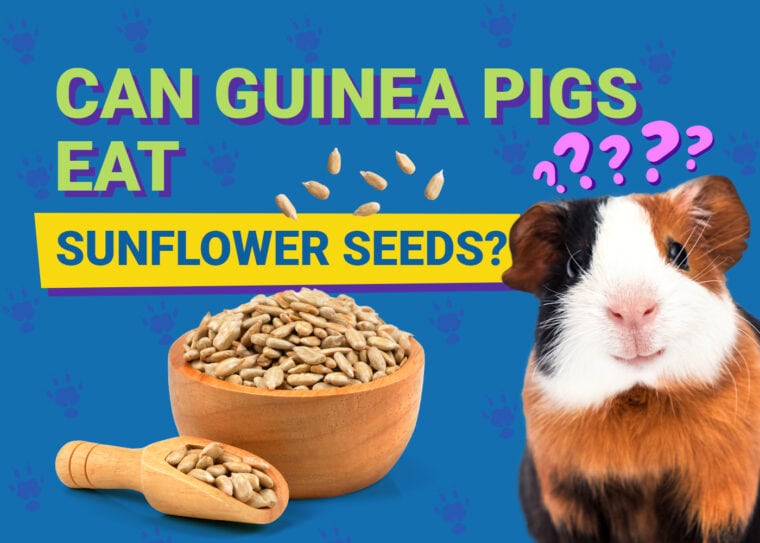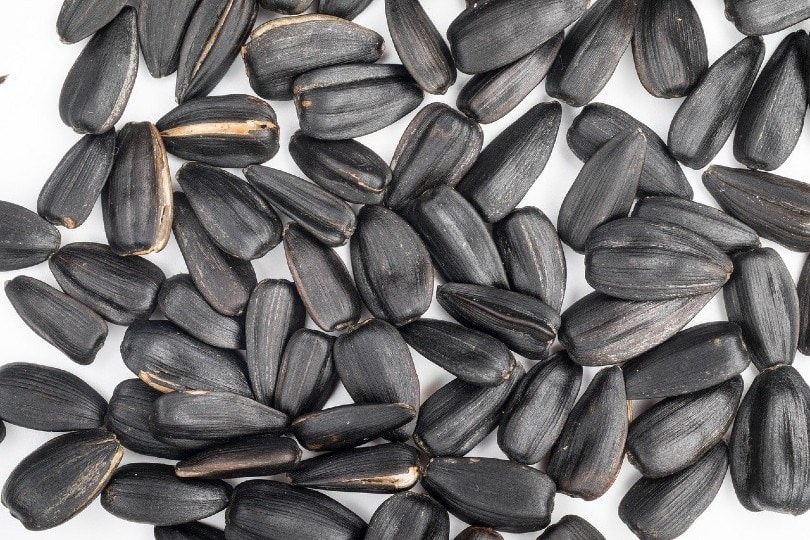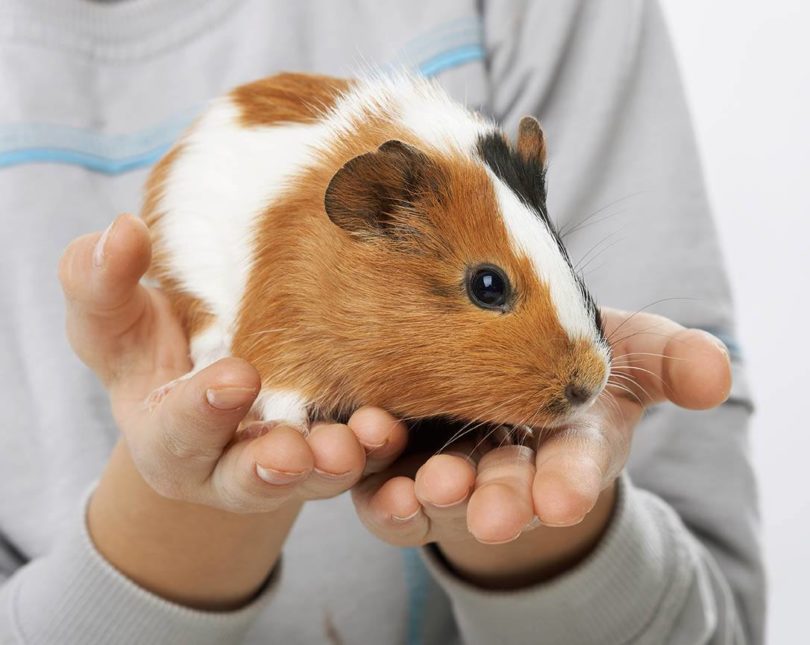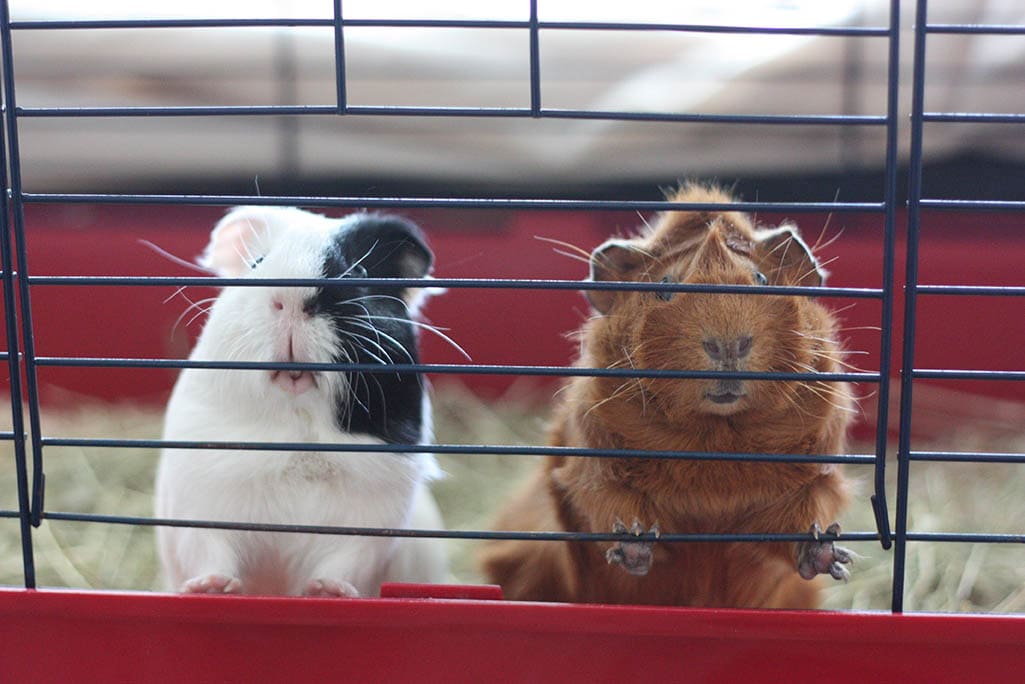
Lots of commercial guinea pig food contains seeds along with pellets, and to humans, the seeds look like the most appetizing part of the mix. But are sunflower seeds safe for guinea pigs?
The short answer is that while sunflower seeds aren’t toxic for guinea pigs, you should avoid giving them to your piggy. We’ll go over everything you need to know about sunflower seeds in your guinea pig’s diet, why it appears in some food, and a few healthy alternatives.
 Why Aren’t Sunflower Seeds Safe?
Why Aren’t Sunflower Seeds Safe?

While sunflower seeds contain some beneficial nutrients and healthy fats, there are much better sources of necessary vitamins and minerals that are also safe for your guinea pig.
It’s best to avoid giving your guinea pig sunflower seeds altogether.
What If I Chop the Seeds Into Small Pieces?
Maybe you’ve already given your guinea pig a sunflower seed or two before reading this, and you found that they loved it. It’s true that guinea pigs love seeds and other fatty foods just like humans do. However, while we may like fattier foods, that doesn’t necessarily mean that they’re healthy!
If you’re set on offering your cavy some sunflower seeds and want to do it safely, you may think it’s fine to chop the seeds into small pieces that won’t pose a choking hazard. This is not advisable either. Sunflower seeds don’t fit into the high-fiber, low-carbohydrate, low-fat diet that is safest and healthiest for guinea pigs.
Many commercial guinea pig food mixes contain sunflower seeds to appeal to the humans who purchase them. While guinea pigs do love the taste, sunflower seeds and other hard seeds don’t belong in a cavy’s diet. It’s also best to offer your guinea pig commercial pellets made specifically for them instead of a seed mix, as pellets are more nutritionally appropriate for them.

What About Sunflower Seeds as Treats?
Sometimes a bit of unhealthy food is okay for an infrequent treat, right? While that is true, sunflower seeds are not the right indulgent snack to go to! While seeds contain fat and sometimes salt that can be unhealthy but generally acceptable in very small quantities from time to time, the major issue with sunflower seeds in any capacity is that they pose such a serious choking hazard.
Instead of giving your guinea pig seeds, offer them something soft and sweet as a safe alternative. In terms of treats, small offerings of fruit are acceptable for guinea pigs because many fruits are highly palatable and easily digestible and may even offer vitamin C to your guinea pig. Examples of such fruits include apples (without the seeds), pears (also without the seeds), kiwi, strawberries, grapes, and blueberries.
Other great treats that can be fed in small quantities and on occasion that your cavy will absolutely love are cantaloupe, baby carrots, and aromatic greens like the leaves from radishes, arugula, and parsley. Some of these may not seem very appealing to us, but your guinea pig will be thankful!
Please note that guinea pigs do require at least 1 cup of fresh, safe-to-consume, high-in-vitamin-C vegetables on a daily basis. Some of the foods previously mentioned can also be used as part of their daily diet.
- Related Read: What to Feed Your Guinea Pig When Out of Guinea Pig Food
What About Other Seeds?
Now that you know that sunflower seeds can pose a choking hazard, you may be wondering about other seeds. Other hard seeds like sesame seeds, pumpkin seeds, and hard seeds from fruit like apples and watermelons can be dangerous as well. On the other hand, soft seeds in tomatoes, peppers, cucumbers, and many other vegetables are perfectly safe and don’t need to be removed before you offer the vegetable to your guinea pig.

Summary
Your guinea pig may love sunflower seeds, but they are not safe for them. They can cause a major choking hazard even if they are chopped up. You should be careful to avoid guinea pig foods and treats that contain sunflower seeds, as many commercial food producers include them to appeal to humans even though they aren’t healthy for piggies. Instead of sunflower seeds, give your little pet safe and healthy alternatives as treats, like baby carrots, parsley, or radish leaves.


 Why Aren’t Sunflower Seeds Safe?
Why Aren’t Sunflower Seeds Safe?





